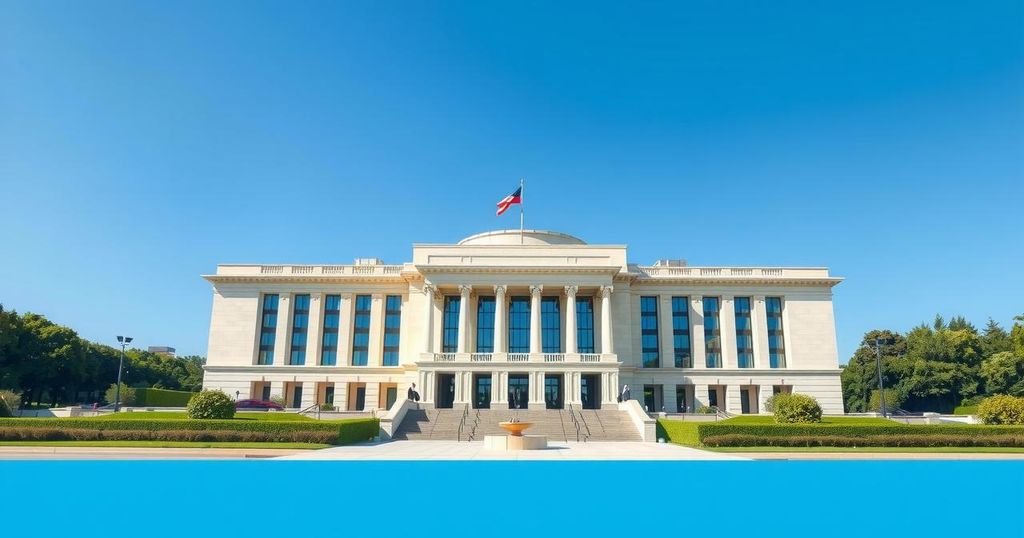Comoros Ruling Party Achieves Significant Parliamentary Majority

President Azali Assoumani’s ruling party has achieved a substantial parliamentary victory by securing 28 out of 33 seats, including one for his son. The opposition’s participation was limited, and claims of electoral misconduct arose, with elections denounced as a farce by the United Opposition coalition. Upcoming run-offs will finalize the seating for two additional parliamentary positions.
The ruling party of Comoros, led by President Azali Assoumani, has secured a dominant victory in the latest parliamentary elections, winning 28 out of 33 available seats. Among the elected representatives is Nour El Fath Azali, the president’s son, who received a remarkable 85% of the votes in his district. Following the elections, two seats will proceed to a run-off scheduled for February 16, and the opposition managed to secure only two seats while one went to an independent candidate. Furthermore, the ruling party retains control over the governorships of all three islands that constitute the nation.
The elections on Sunday were boycotted by most opposition parties. The Independent National Electoral Commission confirmed the outcome late Tuesday, though no voter turnout figures were provided. Fakridine Mahamoud, the Minister of the Interior responsible for overseeing the elections, stated, “The people have decided. I am not saying that everything was perfect, but I believe that there has been a lot of exaggeration in certain facts.”
The United Opposition coalition criticized the electoral process, labeling it as “the worst electoral farce of our half-century of independence.” Overall, the elections resulted in significant consolidation of power for the ruling party, further complicating the political landscape in Comoros.
Located in the Indian Ocean, Comoros is an archipelago nation comprised of three main islands, each with its own governance. The recent parliamentary elections underscore the political dynamics within the country, particularly the ruling party’s dominance and the challenges faced by opposition factions. The electoral process has historically been contentious, with allegations of voter suppression and irregularities often surfacing during elections, influencing the political stability and democratic processes on the islands.
The strong performance of President Azali Assoumani’s party in the parliamentary elections reinforces its authority over Comoros, raising concerns among opposition factions regarding democratic representation. The critical responses from opposition parties and the upcoming run-off elections indicate ongoing tensions within the political framework of the nation. This recent electoral outcome could further entrench the ruling party’s power in Comoros, complicating the prospects for political balance in the near future.
Original Source: www.barrons.com






